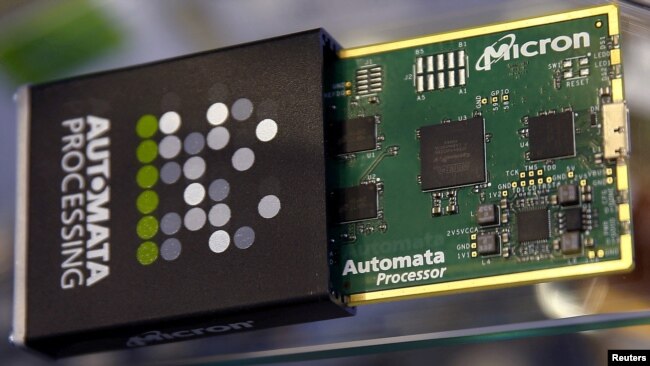半導体不足は今
車は受注生産です。しかしチップ不足から、生産が遅れて原減産を余儀なくされています。ここにあるようにこれまでなら、カンバン方式で部品調達をしていましたが、過剰購入は品薄への対処としては至極当然の流れです。
そんな中、やはり好調なのは半導体受託生産で世界最大手TSMC(台湾積体電路製造)。
取引先である米アップルの「iPhone13」は世界的なインフレや景気後退懸念にもかかわらず、引き続き販売が好調。第5世代(5G)通信網や人工知能(AI)に利用される高性能コンピューティング(HPC)半導体も売り上げを伸ばしている。
と、REUTORが伝えています。
VOAで英語を学びましょう!!
チップ不足が余剰に(和訳)
Chip Shortage Turns into Surplus
July 15,2022
コロナウイルスのパンデミックにより、パソコンやスマートフォン、自動車などのメーカーが、製品に必要なコンピューター・チップを失いました。
それが5月下旬から6月にかけての3週間で急変したのです。高インフレ、中国のCOVID規制、ウクライナ戦争などで、特にパソコンやスマートフォンなどの個人消費が落ち込んでいました。
チップ不足は、一部の産業では余剰に転じました。6月下旬には、メモリチップ会社のマイクロン・テクノロジー社が減産すると発表しました。市場の急激な変化にマイクロン社は驚かされたと、最高経営責任者のスミト・サダナ氏は言います。
業界の不況を懸念する声は、コンピューター・チップの株価に深刻な影響を及ぼしています。フィラデルフィア半導体指数は、2022年に入ってからこれまでに35%下落しました。これはS&P500の19%の下落をはるかに上回るものです。
Hoarding買いだめが状況を悪化させています。買いだめとは、何かを大量に集めたり保存したりすることです。パンデミックの際、多くのメーカーが大量のコンピューターチップを保管しました。
それ以前は、それらのメーカーは、余分な物資を持たず、保管スペースや支出を減らすために、できるだけ生産時期に近い時期に部品を注文していました。
専門家は、コンピューター・チップの余剰分は、事業分野によって偏って打撃を与えていると言います。電子機器メーカーにチップを供給している大手メーカーは、この減少で最も大きな打撃を受けるだろうと、半導体専門家のトリスタン・ゲラ氏は述べます。
コンピューター・チップの設計会社であるエヌビディア社は、価格の下落が続くと特に大きな打撃を受ける可能性があると、ゲラ氏は付け加えています。エヌビディア社は、ゲームや暗号通貨として知られるデジタルマネーに使われるグラフィックチップを製造しています。
※graphic chips:「GPU」のこと。画像処理を担当するパソコンの部品(半導体チップ)video chip とも言う。
余剰の影響を最も受けないのは、台湾セミコンダクター・マニュファクチャリング社のようなアップル社のサプライヤーだと、コンピューターチップの専門家マット・ブライソン氏は言います。アップル社のデバイスに対する需要は依然として高いのです。
業界幹部や専門家は、世界中の倉庫にどれだけの余剰チップがあるのか、言うことができません。しかし、業界専門家のマーク・リパシス氏によると、2022年1〜3月の供給数は、大手電子機器製造サービス会社で過去最高を記録しました。それ以前の記録は20年以上前です。
メーカーは新しいチップを購入する代わりに、倉庫にあるチップを使い切ることにして、注文をキャンセルする可能性があると、リパシス氏は警告しています。
専門家の中には、自動車用チップメーカーは今のところ安全だと言う人もいます。しかし、それは長くは続かないかもしれません。
業界専門家のステイシー・ラスゴン氏はロイターに対し、自動車メーカーが必要だと思われるチップよりもはるかに多くのチップを発注していると話します。
そのため、自動車メーカーが現在の供給量を使い切るためにチップの購入を止めたときに問題が生じるでしょう。
Chip Shortage Turns into Surplus
The coronavirus pandemic left makers of personal computers, smartphones, and cars without the computer chips needed to make their products.
That suddenly changed during a period of three weeks from late May to June. High inflation, China's latest COVID restrictions and the war in Ukraine have reduced consumer spending -- especially on computers and smartphones.
Chip shortages turned into a surplus in some industries. By late June, memory chip company Micron Technology Inc. said it would reduce production. The sudden change in the market caught Micron by surprise, said Chief Business Officer Sumit Sadana.
Worries about an industry recession have severely affected computer chip stocks. The Philadelphia Semiconductor index has fallen 35 percent so far in 2022. That is far more than the S&P 500's 19 percent loss.
Hoarding is making the situation worse. Hoarding is the practice of collecting or storing a large amount of something. Many manufacturers stored a large number of computer chips during the pandemic.
Before that, those manufacturers ordered parts as close to production time as possible to avoid having extra supplies and to reduce storage space and spending.
Experts say the computer chip surplus has hit unevenly across business areas. Big suppliers of chips to electronics makers will be hit hardest by the decline, said semiconductor expert Tristan Gerra.
Computer chip design company Nvidia Corp could be hit especially hard as prices continue to fall, Gerra added. Nvidia produces graphic chips used for gaming and the digital money known as cryptocurrency.
Among those least affected by a surplus are Apple Inc's suppliers like Taiwan Semiconductor Manufacturing Co, said computer chip expert Matt Bryson. Demand remains high for Apple devices.
Industry executives and experts cannot say how many surplus chips are in storerooms around the world. But industry expert Mark Lipacis said supply numbers for the first three months of 2022 hit a record high at major electronics manufacturing services companies. The earlier record was over 20 years ago.
Manufacturers may decide to use up chips in storerooms instead of buying new ones, and cancel orders, Lipacis warned.
Some experts said automobile chipmakers are safe for now. But that may not last long.
Industry expert Stacy Rasgon told Reuters that automakers were ordering far more chips than they appeared to need.
That will create a problem when vehicle makers stop buying chips to use up their current supplies.
Words in This Story
consumer – n. a person who buys and uses up goods
semiconductor – n. a solid substance that conducts electricity imperfectly
